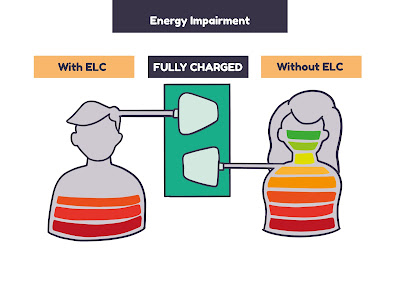What are energy limiting conditions? A guide for employees and their managers is a new resource, produced for Astriid charity. I hope it will be a gamechanger for unlocking conversations about health, disability and work, and lead to more people with chronic illness getting the support they need at work.
I've lived with an energy limiting condition (ELC) for decades, but for a long time, I didn’t have the language to describe my needs and ask for adjustments that could have helped me take part in life. I didn't even know if I was allowed to do so, because I didn't see people like me in representations of disability or in the landscape of disability rights.
The work I did with Chronic Illness Inclusion (CII) taught me that many of us feel the same. The gap between our day-to-day reality and society's understanding of chronic illness as a form of disability is vast. Many people report that this conceptual gap, and the lack of understanding from everyone - from friends and family to employers and healthcare professionals - is the biggest obstacle they face to living as fully as possible with a long term health condition. CII's pioneering work on ELCs was all about developing tools for self-advocacy, where everyday words like 'tired' are not up to the task.
Nowhere is this conceptual toolkit more needed than in the world of work.
This is a resource to help you push back on the notion that 'everyone gets tired' and challenge the commonplace assumption that pushing through fatigue and pain at work is your individual responsibility.
Whether you're in work, or exploring the possibility of work with a chronic illness, I wrote this for you. I hope it provides you with a framework that helps others - whether line managers or colleagues - understand the reality of your life. It helps to explain the reality behind the 'mask' we wear when interacting with others; the reality of how much we sacrifice outside of work in order to be in work, and the reality behind the damaging stereotypes of blame and distrust that surround chronic illness.
For managers and employers coming across this guide, did you know that 1 in 3 disabled people has an energy limiting condition? These conditions are typically invisible and often not even seen as a disability. I wrote this for you, to give you the knowledge needed to support your employees to do their best work, or even to enter the world of work at all. This will include those who may not have felt able to disclose their health condition until now. I hope it will empower you to realise that by listening, centring their experience and working together to find solutions, you can make all the difference. No specialist medical knowledge is needed, and most of the adjustments required by people with ELCs are free, or low cost.
This is a resource to push back on the notion that 'everyone gets tired' and challenge the commonplace assumption that pushing through fatigue and pain at work is an individual responsibility.
Astriid - experts by experience on energy limiting conditions at work
This resource was created for Astriid, a charity that connects people with long term conditions with meaningful work. It forms part of Astriid's suite of training products on Supporting People with Long Term Conditions at Work. You can find out more about Astriid training and consultancy here.
Whether you are in a people management role, or someone living with an ELC, or both, I welcome your feedback on this guide through comments on my blog. Thank you in advance.

Comments
Post a Comment